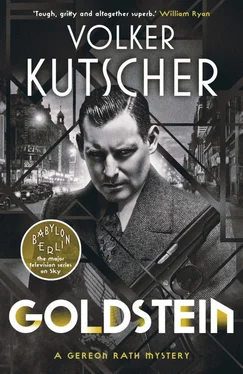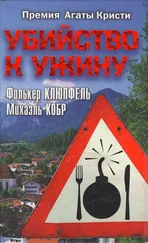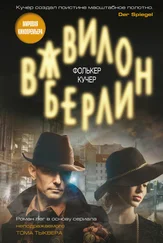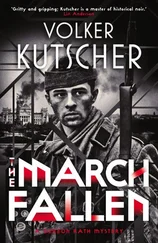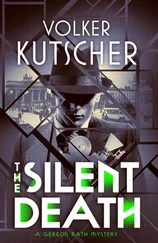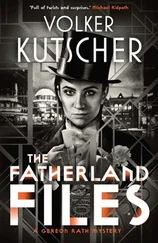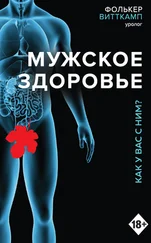Kuschke kept glancing at his wristwatch. Well now, Charly thought, perhaps we have jolted him into action. Who knows? Instinctively she checked for her pistol. Kuschke proceeded to the tram stop where a few people were waiting, or else Charly wouldn’t have felt safe. She didn’t think he’d seen her, but knew he had a fifteen-year-old boy on his conscience, and had opened fire on a girl in broad daylight. She studied the timetable while watching him out of the corner of her eye.
The tram rumbled into view, the 3, both cars full to bursting. Kuschke climbed into the first and Charly sprang onto the rear platform.
The tram rattled along, north past Nollendorfplatz and Herkulesbrücke and on through Tiergarten. The rain had stopped; perhaps Kuschke was out for a stroll? But he didn’t get out until Hansaplatz, when they had already left the green of the Tiergarten behind. What was he doing in an upmarket neighbourhood like this? Did their mysterious, bespectacled witness live here somewhere, and Kuschke had discovered his address?
Charly stepped from the platform and pretended to cast her eye over the timetable at the tram stop, playing the country girl while keeping Kuschke in view. Moving down Lessingstrasse, he was heading for the church, the same Kaiser-Friedrich-Gedächtniskirche on the corner of the Tiergarten that she remembered from Sunday outings with her parents and brothers. On the way back they had always stopped at Buchwald on Moabiter Bridge, for Kaffee und Kuchen , cocoa for the children, before returning home. She had loved those family Sundays, at least for a time.
She followed Kuschke at a distance. There wasn’t much going on around them, so she had to take care that he didn’t spot her. She fell back a little. Before the church he turned right onto Händelstrasse. She accelerated again. Lessingstrasse appeared infinitely long, and she hoped that Kuschke wouldn’t vanish before she turned the corner. The houses on Händelstrasse were beautiful, offering an uninterrupted view of the park. Accordingly, they were much in demand: her father had always dreamed of owning one, but had never made it out of Moabit.
She had almost reached the end of Lessingstrasse when a uniform policeman came around the corner and, for a moment, she felt as if she had been caught out, even though she wasn’t doing anything illegal. The cop folded a handkerchief and stowed it in his pocket. By now she had reached Händelstrasse.
She peered around the corner and almost jumped back, so great was the shock. Kuschke hadn’t vanished into one of the houses, or the Charlottenhof , the outdoor restaurant at the edge of the park, whose outside tables were currently rainsoaked and uninviting. No, he stood not ten metres away, leaning against a streetlamp as if needing to take a quick breather.
Luckily he had his back turned and hadn’t seen her. It didn’t look like there was anyone else around. She positioned herself behind the advertising pillar on the corner. As she squinted to the side to keep Kuschke in view, she stole a glance at the posters. The Marriage of Figaro at the Kroll Opera House – hadn’t it been closed in the meantime? She realised she was nervous, waiting for Kuschke to continue walking. He stood, not moving, one hand on the streetlamp and the other holding his stomach. What was wrong? Did he have a sore tummy?
Next to the opera poster was a police appeal from the Castle. Wanted. Abraham Goldstein. Gereon’s fugitive gangster.
She grew more nervous. What was wrong with Kuschke? Should she overtake him, but then what? Use the trick with the make-up mirror? What if it was a trap? What if he was just waiting for her to do that – because he’d already recognised her?
Only now did she realise what it was that so puzzled her: the umbrella. It lay by his feet, and he was making no effort to pick it up.
She decided to abandon her cover and approach him when his bulky figure lurched so suddenly it was as if a puppet’s strings had been cut. He slid down the streetlight and sank to his knees as if in prayer.
She moved as quickly as she could, heard Benjamin Singer’s alleged killer panting, his breathing heavy and frantic, but it was only when she reached him, when she saw his horrified eyes framed between the brim of his hat and the fresh plasters, and his blood-soaked shirt, that she realised what had happened.
She couldn’t understand it, but neither could Kuschke who stared at his blood-smeared hand in disbelief, at the butt of the knife jutting out of his breast, then at her, at Charly. She knew he was a killer, possibly even a sadist, but his dying man’s gaze cut her to the quick. His breathing grew faster so that it seemed as if the air were being pumped out rather than into his lungs. He tried to say something but couldn’t, and then, before she could catch him, he collapsed to the side, striking his head against the pavement.
Back at the Castle things were no more than ticking along. Half the officers were either still at the cemetery or out eating lunch. Rath was glad to have disappeared after Kuhfeld’s coffin was lowered into the ground, having slipped away as the police orchestra was still playing, before Böhm could get his hands on him. He had returned to Alex in the Buick.
Vice was almost as deserted as last night. The clattering of a typewriter came from a single room, a lone secretary at work. All was quiet behind the door leading to DCI Krüger’s office, where Lanke had his desk. If Rath was unlucky he would still be in the canteen; if not, he could give the porn lover a good, old-fashioned fright. He reached carefully for the handle, took a deep breath and threw the door open with a jolt, using his full force.
‘Well, hello!’ he yelled into the room, as brazen as Werner Lanke himself. He was in luck.
Gregor Lanke gave a start. This time he didn’t have a chance to clear the photos off his desk but gazed back red-faced, as if his heart had skipped a beat. Another organ was beating in its place, visible in the bulge of his trousers.
‘Have you gone mad, startling people like that?’ Lanke junior groaned. His erection shrunk in record time.
‘What have you got there?’ Rath leaned over the desk to get a better view. The picture on top showed Old Fritz engaged in oral sex. Rath confiscated it before Lanke could react. ‘They’re over two years old, those ones. I didn’t know you were still working on the case?’
‘I… we,’ Lanke stammered.
‘I don’t mean to boast, but we were a bit quicker in my time.’
‘What the hell are you up to, damn it?’ Lanke counterattacked.
‘You’re a CID officer, man. Have you no self-respect?’
‘That’s none of your fucking business. What do you want from me?’
Rath threw one of the photos he had taken from Lanke’s desk last night onto the table: a strapping young lady, naked and on all fours, behind her a man toiling single-mindedly away with one hand on her arse cheek and in the other a modern 35mm camera, perhaps a present from Uncle Werner. In the mirrored wardrobe doors, it was possible to make out not just the bored face of Marion Bosetzky, but also that of the photographer.
Gregor Lanke gazed at his own likeness.
‘I take it these aren’t your new passport photos,’ Rath said.
For the second time that day, it took the detective a moment to rediscover his voice. ‘Where did you get that,’ he gasped. ‘Have you been…?’
‘This isn’t about me,’ Rath interrupted. ‘It’s about you. You’ve been having sex with a prostitute who’s also on the E Division payroll. Illicit sexual relations with dependants, you could call it. Not that it matters if it constitutes a criminal offence, nor, indeed, what it’s called. It’s enough, I think, for the press to be aware of the sense of duty you evince in your dealings with prostitutes. This sort of field study would certainly have been unusual during my time with the department.’ Rath paused, enjoying Gregor Lanke’s face. ‘Knowing your uncle as I do, I wouldn’t want to be in your shoes if this gets out.’
Читать дальше
